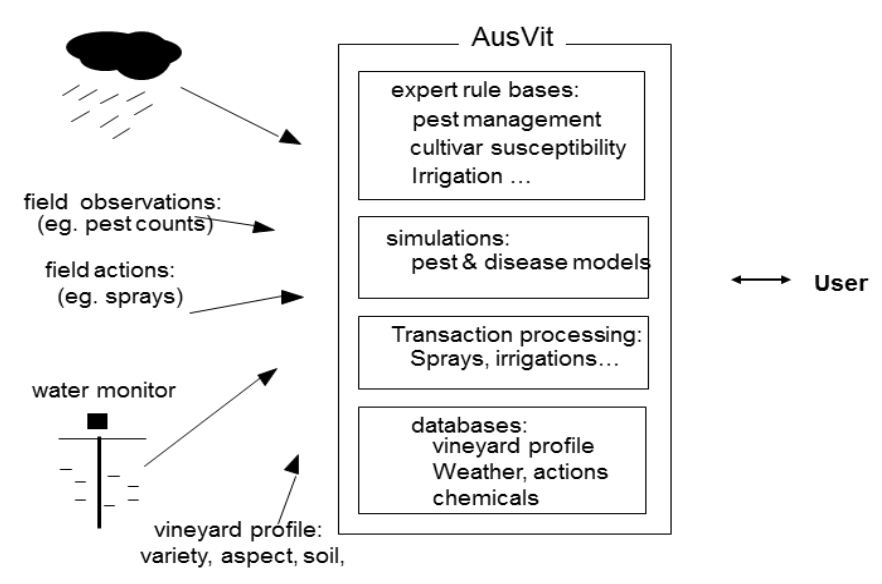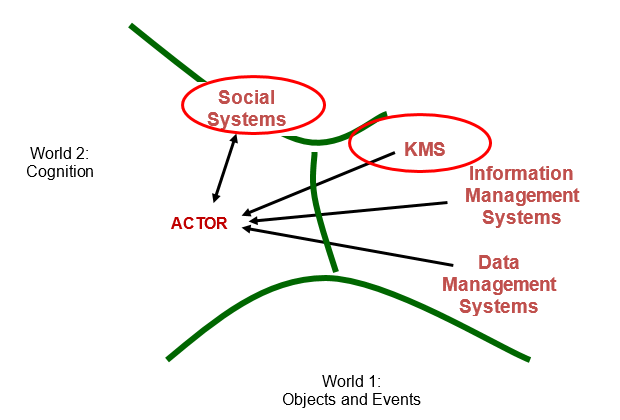Abstract
In this assignment, the researcher focused on the study conducted by Ibrahim Seba, Jennifer Rowley, and Rachel Delbridge, in their article Knowledge Sharing in the Dubai Police Force. The research has critically analysed the works of these three scholars in the context of the knowledge management system. In order to justify the need for this study, the paper has elaborately explained the rationale for the study. The paper then focuses on the approach taken by the scholars in proposing for the best ways of using knowledge management system in promoting service delivery of the Dubai police force. Finally, some of the barriers to knowledge sharing have also been analysed.
Précis
I believe that the practical application of the principles of knowledge management done by Soltero, Melendrez & Valenzuela (2013) shows maturity in understanding the concept of knowledge management. The manner in which knowledge management principles has been used to improve the training environment shows that they understand problems faced by trainers and trainees in a learning environment. They propose effective ways on how these problems can be solved through the use of a knowledge management system. Their paper has identified seven key areas in a knowledge management system that closely compare to what has been learnt in this unit. They include knowledge identification, acquisition, creation, dissemination, application, storage, and assessment. These are the key areas that that are vital in improving decision making processes in an organisation. The article validly explains how knowledge management can be used practically to improve the learning environment.
Introduction
The research found in Knowledge Sharing in the Dubai Police Force is a research paper written by Ibrahim Seba, Jennifer Rowley, and Rachel Delbridge who were interested in developing an understanding of knowledge management and knowledge sharing among the players in the public sector (Seba, Rowley & Delbridge 2012, p. 120). The researchers focused their study on the Middle East, a region they considered an emerging economic power given the number of interests that the international investors have in the region.
The research paper sought to capture how the public sector, specifically the police force in Dubai, use knowledge management to improve their performance in promoting peace and security within the city. The police force plays an important role in maintaining law and order within a country. However, it is worrying that a wave of insecurity has hit several countries in the Middle East because of the superior management structure of criminal gangs. In most of the cases, the police are always caught unawares when these gang strike.
Sometimes the intelligence agencies would gather the information, but fail to pass it to the relevant authorities in time because of the poor communication system. The scholars believe that the unfortunate scenario can be solved by having a superior knowledge management system that can promote efficiency in sharing the relevant information to help the police force. Their work focuses on how the police force in Dubai can use the knowledge management system to improve its service delivery.
The rationale of the study
Conducting research is a very involving process, and it is important to have a clear justification as to why a given research process is worth a study (Gerami 2010, p. 235). The Middle East region has suffered from numerous terror groups, the fact that it has crippled trade and development in the region. In most of the cases, the criminal gangs are always well-organised than the police force. It is a fact that some of these gangs fight for what they believe in for the benefit of society.
However, the approach they take is wrong, creating anarchy in the country. It is important to find ways of addressing the problem posed by these gangs. It is unfortunate that the police force in this region has been unable to handle the situation, making it difficult to assure the residents of this region their security (Girard 2005, p. 12).

The research is important because it seeks to review the proposed approach of how the public sector in the Middle East, especially the police force in Dubai, can use the knowledge management system to promote security in this region. The research seeks to find a way in which these officers can make use of Technical System Architecture- shown in Figure 1- to share information and coordinate their activities in a way that would bring success in their work (Buckman 2004, p. 32). From this assignment, the researcher will be able to determine how well these scholars have used the concept of knowledge management in their proposed strategies.
Summary of the research paper
The research work by these three scholars focuses on how the public sector in the Middle East can promote efficiency in their service delivery through the use of a knowledge management system. This research work is divided into five major parts. In the introduction, the researchers introduce the topic by highlighting the problems faced by the public sector in this region and how the use of a knowledge management system can help in addressing the problems. In the literature review, the researchers look at the works of other scholars and case studies of the success made by the public sectors in other regions through the use of knowledge management systems.
This section starts by analysing the process of sharing knowledge in the public sector. It then analyses the knowledge management in the context of the Arab culture. The third section is the methodology of how the researchers conducted their work. In the fourth section are the findings of the research based on the data obtained. The last section is the conclusion and recommendations. From their findings, the researchers highly recommend the use of a knowledge management system by the public sector in the Middle East as a way of promoting efficiency in service delivery.
Analysis
Knowledge management policies
According to this article, the Dubai police force has invested a lot in promoting service delivery in this country. It has been committed to finding ways of utilising any piece of knowledge gathered from the field in promoting security in the country. However, the researchers have realised that the authority has not managed to find the best ways of sharing knowledge because of their inability to use the knowledge management system. The police force has failed to use the knowledge as presented in Popper’s Three Worlds of Knowledge shown in Figure 2. The inefficacy of the police has largely been blamed on the knowledge management policies that are currently in use (Dawson 2000, p. 51).

The policies do not focus on how different stakeholders in this department can share information for the betterment of the services delivered. This explains why sometimes the intelligence gathered by the relevant authorities within the force fails to reach the officers on the ground in time to help them prevent crime from taking place. The particular approach that these scholars have taken in making the proposal on how to improve this service clearly demonstrates that they have an understanding of the concept of the knowledge management system (Dalkir 2011, p. 56).
Knowledge sharing in the public sector
These scholars have also given a detailed review of how the public sector can use the knowledge management system to promote knowledge sharing based on the Technical System Architecture shown in Figure 1. The scholars show some level of maturity in understanding the concept of a knowledge management system based on how they propose the manner in which the data should be collected, analysed, and finally disseminated to the responsible authorities.
It is important to collect data from all the relevant sources about security issues in the country and then send it to a centralised system for analysis. Once the information has been analysed, it should be sent to all the relevant users to guide their decision-making process. Once they have used the information, they need to give feedback on how helpful the information was. It helps in determining how the information can be readjusted to address some of the major concerns in security matters.
Barriers to knowledge sharing
In their research, the scholars identified some of the barriers to knowledge sharing that was affecting the ability of the police force in Dubai to share the relevant information. The barriers they have identified in their study are some of the common barriers that affect information sharing in most organisations. The first barrier is ineffective leadership. According to Walsham (2001, p. 603), ineffective leadership may affect the ability of an organisation to gather, analyse, and disseminate knowledge as expected by the stakeholders. They also identified time allocation as another barrier.
According to Lambe (2011, p. 177), trust is another common barrier that always affects the efficiency of the knowledge management system in many organisations. When the stakeholders lack trust in one another, then they tend to withhold some important information to themselves, the fact that hinders effective sharing of knowledge. Sometimes the organisational structure of an organisation or the reward mechanism may affect the ability to share information effectively (Wilson 2002, p. 32).
List of References
Buckman, R 2004, Building a knowledge-driven organisation, McGraw-Hill, New York. Dawson, R 2000, Developing Knowledge-Based Client Relationships: The Future of Professional Services, Butterworth-Heinemann, New York. Web.
Dalkir, K 2011, Knowledge management in theory and practice, MIT Press Cambridge, Cambridge. Web.
Gerami, M 2010, Knowledge Management, International Journal of Computer Science and Information Security, vol. 7. no.2, pp. 234-237. Web.
Girard, J 2005, The Inukshuk: A Canadian Knowledge Management Model, KMPro Journal, vol. 2. no. 1, pp. 9-16. Web.
Lambe, P 2011, The unacknowledged parentage of knowledge management, Journal of Knowledge Management, vol. 15, no.2, pp. 175-197. Web.
Seba, I, Rowley, J & Delbridge, R 2012, Knowledge sharing in the Dubai Police Force, Journal Of Knowledge Management, vol. 16. no. 1, pp. 114-128. Web.
Walsham, G 2001, Knowledge Management: The Benefits and Limitations of Computer Systems, European Management Journal, vol. 19. no. 6, pp. 599-608. Web.
Wilson, T 2002, The nonsense of knowledge management, Information Research, vol. 8, no. 1, pp. 21-42. Web.